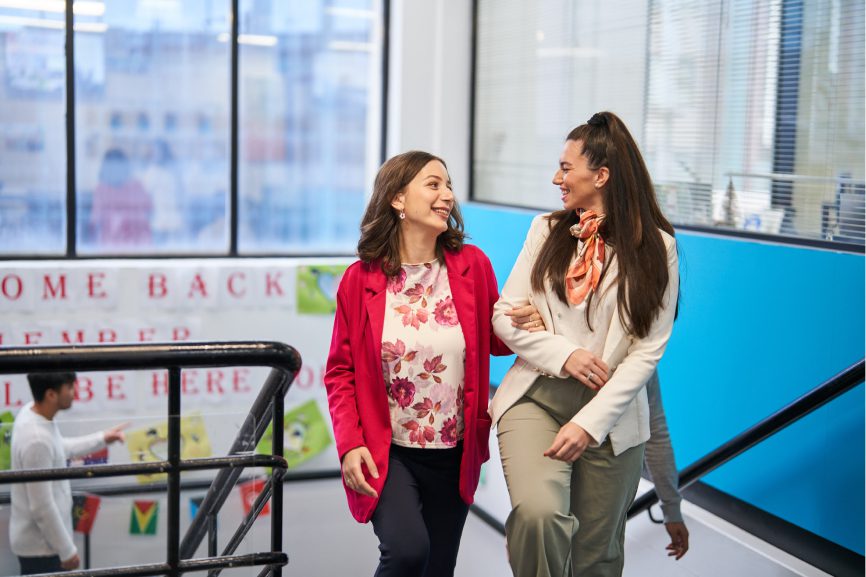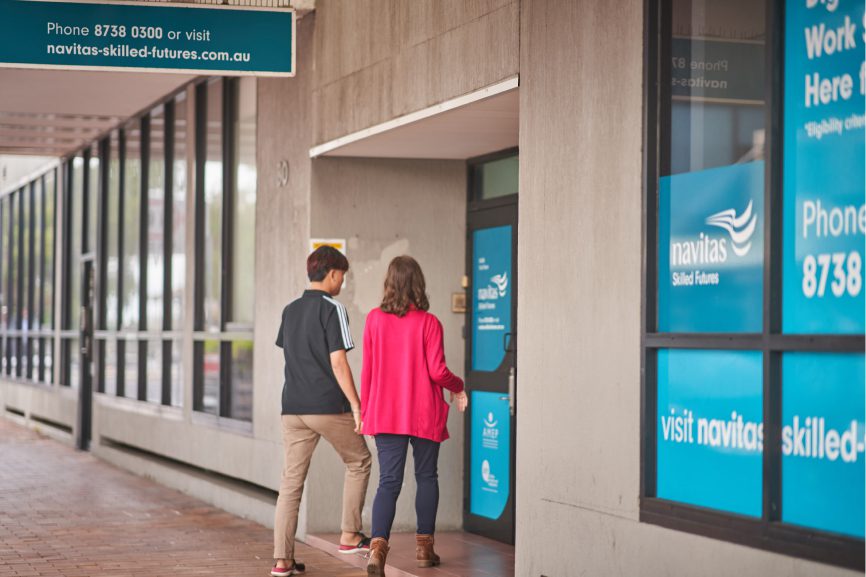Moving to the Land Down Under: A Diary
Our official Reporter for NSF, Sanja, shares her personal experience of starting a new life in Australia. Now a part of the AMEP Youth Class, Sanja is passionate about supporting others through writing about her experiences.

G’day everyone! My name is Sanja. Like most of you I am an AMEP program student, but I also attend the Youth Class which I’ll write more about, but first, let me tell you something about myself…
I’m 25 years old and I came to Australia almost one year ago. I live here with my husband Dušan. Since our names are not that common in Australia, I guess you are wondering about our origin. We come from Serbia (its capital is Belgrade), it is suited in Southeastern Europe and surrounded by: Bosnia and Herzegovina, Croatia, Hungary, Romania, Bulgaria, Macedonia, Albania and Montenegro. Our country has about 7 million citizens. Serbian is official language. The Cyrillic alphabet is official, but we also use The Latin alphabet, meaning that every word can be written in two ways, but the pronunciation stays the same (e.g. Cyrillic: Aустралија = Latin: Аustralija, both meaning Australia). We have no sea, but plenty of rivers, lakes and spas. Our climate is a far cry from this climate here because we have 4 different seasons, including winter which starts in December and finishes in March, and includes snow! Knowing all that, can you imagine how surprised I was when I came here at the end of May last year? Instead of a warm climate, it was cold and windy, huge traffic jams everywhere, people speaking many different languages, different cultures, food, and habits, and not to mention all that water I was looking at while the plane was getting closer to Australia! To say the least, I was surprised, and I thought I would never get used to the Aussie lifestyle.

But who doesn’t think that when moving to another country? Even when moving from your hometown to another city in your own country for studies, e.g., you face so many changes, even though the social and cultural surroundings remain the same. In that case, you don’t learn just about subjects, you also learn how to become responsible and independent, you leave your family, and you are the one in charge of everything: cooking, cleaning, time organisation and finances. And all of that is a piece of cake compared to starting life in another continent! Therefore, it is reasonable and expected that we all react differently to those changes, some think of them as great opportunities, others think of them as difficulties they must cope with. Some might be eager, others might be afraid, but we’ll all need time to accept and adapt to new situation.
When I came here, a lot of things changed at once: time zone, climate, language, environment, the whole nine yards… We were apart from all of our family members and friends, it was the first time I came to Australia, so I didn’t know the roads and places here, I didn’t know anything about the local community and its way of life. The one and only person I knew was my husband, but he means the world to me, so our love empowered me to be patient and give myself time to get accustomed here. Slowly I got used to all the differences I noticed in the beginning, and I soon realised that all those dissimilarities comparing to other countries make Australia unique and beautiful.

As the time went by, I discovered a lot of shops and stores that are owned by Serbs, especially in my neighbourhood, so whenever I felt homesick, I went there, bought some products from my country, and talked with the sellers in our language. It helped me a lot and made me happier. The most difficult part of the day was between 7 AM and 5 PM – my husband’s working hours, and because of an 8-hour time zone difference my family and friends were asleep. In that period, I was not eligible for any studying program, but I decided to not waste time and be productive instead, so I learnt more about cooking, solving a lot of nice jigsaw puzzles that consist of 1000 pieces which turned out to be beautiful pictures now decorating our walls and I created some artwork. So, my advice to all migrants is: always keep your hands and thoughts occupied with useful and creative projects; instead of feeling lonely and homesick at the end of the day, you will have something to show – delicious meals to share with the loved one or some nice objects to decorate your home or give as a present to those who you miss.

So, let’s see… About the climate – I am still getting used to it, about feeling nostalgic – I called my family and friends via video calls, and while they were sleeping, I occupied myself with some creative crafts and developed my cooking skill as well, so the only thing that was left was my English. Even though students in Serbia are taught English in primary, high school and University, I was shy to use it when I came here, I always relied on my husband, the perfect English speaker, by the way. It was an easier way and I got used to it. He has always been so supportive and helped with everything, but he realised that I would never start speaking and improving my English unless I actually start using it. He explained that it might be challenging, but it’s vital we start practicing together (by leading everyday conversations in English), I started watching English movies and TV series and finally start speaking English in shops, the sooner the better. He explained that there is no use in waiting and being shy, and I would gradually improve and become more self-confident. He was so caring and encouraging, so I decided to take his advice and give it a try. Meanwhile, I became eligible to study English at school, so we searched the Internet together and found out about Navitas Skilled Futures and the AMEP, and I decided to enroll. Involving yourself in an English-speaking society is highly important when learning a language. But my experience with Navitas is another topic, ta-ta for now!
10 things to do when you feel bored:
- Discovering new recipes
- Solving puzzles (a-500 or a-1000-piece Jigsaw puzzles, 3D puzzles, wooden puzzles)
- Resin art
- Knitting
- Crocheting
- Drawing
- Calligraphy
- Learning origami
- Doing exercises
- Learning English on your own
10 useful links for supporting your English language learning:
- https://www.duolingo.com/
- https://a4esl.org/
- https://www.englishclub.com/
- https://www.esolcourses.com/
- https://keithspeakingacademy.com/
- https://www.oxfordonlineenglish.com/
- https://www.perfect-english-grammar.com/
- https://englishfinders.com/
- https://ozdic.com/
- https://a4esl.org/

